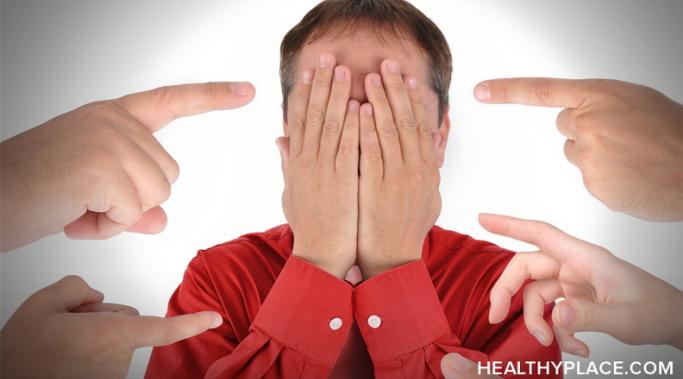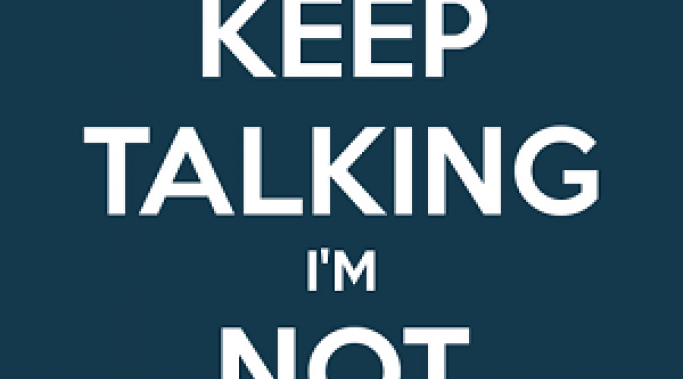Troubleshooting anxiety is an important part of the ongoing process of living well and thriving despite anxiety. Anxiety has an annoying habit of popping up at seemingly random times. Just when you think your anxiety is improving, it rears its hideously ugly head and jumps in front of you, blocking your path forward. Making matters worse is the fact that anxiety is often vague and hard to pinpoint. The following how-to guide for troubleshooting anxiety will help you identify specific problems and determine how you want to deal with them.
Anxiety Management – Anxiety Schmanxiety
It's truly okay to let yourself be anxious. Why? Because sometimes we all just need to allow ourselves to feel how we feel, to be okay with anxious thoughts (Letting Someone with Mental Illness Be Upset). It's even okay to express those anxious feelings. The key is how much we let ourselves be anxious.
When it comes to meeting new people, social anxiety instills in its sufferers a sense of dread. Having to meet new people can sound alarms and ignite warning fires in the minds and bodies of those living with social anxiety (Extroverts Can Experience Social Anxiety, Too). In response to the fires, fire walls within the brain pop up, sealing off areas like rational thought and peaceful feelings so that all attention is funneled to the fire. The fire is a signal of danger—of stranger danger—and it makes us dread meeting new people. What we often don’t realize is that we are in charge of the alarm, the fire, even social anxiety itself. You don’t have to forever dread meeting new people.
Overcoming a type of anxiety known as the imposter syndrome often seems impossible. The imposter syndrome is a crushing anxiety that can plague high-achieving individuals, making them fear being discovered as a fraud, a phony, a fake, a man or woman undeserving of being where he or she is. This anxiety causes extreme stress and fear of failure. Like all anxiety, the imposter syndrome can be significantly reduced and even completely overcome.
Mental health first aid for anxiety or otherwise can refer to a formal educational program that trains people to identify, understand, and respond to people showing signs of mental illness. It’s also a concept that we can all use to treat our anxiety when it flares and threatens to damage us in some way (Developing a Wellness Toolbox). Taking action to keep a problem from growing and worsening is a proactive way of taking control away from anxiety and putting it back into your own hands. By learning how to create and use a mental health first aid kit for anxiety, you can be ready for anything anxiety tries to throw at you.
When anxiety says you can’t _____ (fill in the blank with whatever it is you think you can’t do), it’s frustrating, and it can be tempting to give up. Why bother trying to move forward when anxiety is screaming at you, attempting to convince you that you can’t do something? There are important reasons we should bother moving forward despite being anxious and believing we can’t do something: We are living our lives, we have goals, passions, and purpose, and anxiety is wrong (12 Lies Anxiety Tells You). You can respond to anxiety to take away its voice. You can respond when anxiety says you can't do something.
If you live with anxiety, there’s a good chance that you’ve had conversations with your anxiety. “Conversation” might be too generous a term for the inner dialog that occurs with anxiety. A conversation with anxiety isn’t really a back-and-forth, rational exchange of ideas. Far from civil banter, anxiety’s talk is loud-mouthed, one-sided, boorish, and toxic. It is through this type of manipulative conversation that anxiety is able to maintain power over us. Let’s take a look at an example of a conversation with anxiety to objectively see one of its methods of manipulation.
Wanting to get rid of anxiety is perfectly reasonable and very normal, but focusing on yourself to do that may not have crossed your mind. When we think of getting rid of anxiety our focus is on that anxiety. It is anxiety that is receiving our attention; unfortunately, what we pay attention to sticks around. It can be empowering and uplifting to shift your attention away from anxiety and onto something much better: you. To get rid of anxiety, focus on yourself.
Anxiety has a way of ruining relationships, making us feel unlucky in love. As anyone who has ever had a relationship involving two people and an annoying third wheel—anxiety—knows, love can be hard to feel and enjoy when anxiety gets in the way. Take heart: there are things you can do to keep anxiety from ruining your relationship.
Most people are unlikely to create life-goals that accept anxiety because anxiety can be unbearable physically, mentally, and emotionally. Chances are, you’d prefer your life to be anxiety-free. Of course you would; that’s a very natural thing to want, especially if living with anxiety has you feeling overwhelmed, stressed and exhausted. Creating life goals is an important component to accepting anxiety, but living anxiety-free isn’t an effective part of life goals. It’s okay if your life goals accept anxiety. Here’s why.









